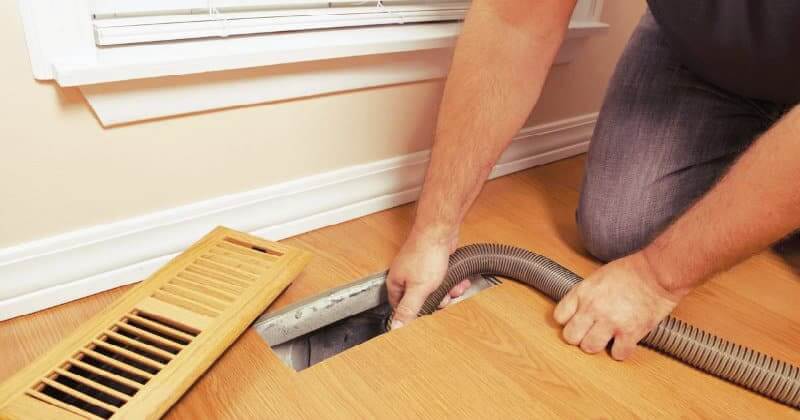When it comes to modern comfort at home or in your business, an HVAC system may feel less like a luxury and more like a necessity. But before diving into installation or replacement, the inevitable question arises: how much does an HVAC system cost? This tremendous technology has transformed indoor spaces, offering heating, ventilation, and air conditioning at the touch of a button. Whether youre upgrading an existing system or installing one for the first time, the costs can vary widely depending on several factors. This article dives deep into the specifics to help homeowners and businesses make an informed decision.

What Is An HVAC System?
Before breaking down costs, lets briefly cover what an HVAC system does. HVAC stands for heating, ventilation, and air conditioning. These systems control the temperature, air quality, and overall comfort of a home or commercial space. Whether you live in sunny Florida or snowy Minnesota, an HVAC system ensures year-round climate control.
Factors That Affect How Much An HVAC System Costs
1. Type of HVAC System
The type of HVAC system you choose will dramatically affect costs. The four main categories are:
- Central Air Conditioning Systems: Generally costlier but deliver uniform cooling.
- Heat Pumps: Effective in moderate climates, offering both heating and cooling.
- Ductless Mini-Splits: Lower-end installation costs but may need multiple zones.
- Furnace and Boiler Systems: Essential for cold climates but installation can be pricey.
2. Size of Your Home or Business
The size of your property determines the systems size and capacity. A larger home will require a more robust system, which, of course, will raise costs. A licensed HVAC professional can help you determine the appropriate size for your space.
3. Installation Complexity
Installing an HVAC system involves more than just purchasing equipment. For example, adding ductwork where none exists can significantly increase both labor and material costs. Replacing an existing system generally costs less than a new installation for this reason.
4. Energy Efficiency and Features
If you are going for energy-efficient, eco-friendly systems, expect to pay a premium upfront. For instance, units with a high SEER (Seasonal Energy Efficiency Ratio) rating are more expensive but consume less energy, cutting down your utility bills over time.
5. Location and Climate
Your geographical location also matters. For example, areas with harsh winters or scorching summers might need specific types of HVAC systems, influencing overall costs.
Breaking Down HVAC System Costs
Equipment Costs
The price for a new HVAC system generally falls between $5,000 and $12,000. Heres a closer look:
- Central Air Conditioning: $3,000$7,500
- Furnace: $2,500$6,000
- Heat Pumps: $4,000$8,000
- Ductless Mini-Split Systems: $2,000$12,000
Installation Costs
Labor makes up a significant portion of total costs, ranging from $1,500 to $5,000. This varies based on the complexity of the project and local labor rates.
Other Costs
Additional costs include ductwork, permits, and ongoing maintenance fees. These can add another $1,000 to $4,000 to your total expenditure.
Cost to Replace an Existing HVAC System
If youre replacing an old system, expect costs to fall somewhere between $5,000 and $10,000. However, this figure can vary depending on whether you need new ductwork or choose advanced features.
Ongoing Costs to Maintain Your HVAC System
Regular maintenance is crucial to extend the lifespan of your HVAC. Annual servicing generally costs between $150 to $500. To learn how maintaining ideal humidity levels can boost system efficiency, click here.
DIY HVAC Installation: Is It Worth It?
While DIY installation might save on labor costs, its not recommended. HVAC systems require precise calibration, and improper installation can void warranties or lead to inefficiencies.
Rebates and Financing Opportunities
Many states and utility companies offer rebates for purchasing energy-efficient systems. Financing options are also widely available, allowing for monthly payments instead of hefty upfront costs.
How Climate Plays a Role in HVAC Costs
In extremely humid areas, an HVAC system needs to also address humidity levels. Learn about reducing indoor humidity here.
Eco-Friendly HVAC Options
For those concerned about environmental impact, geothermal systems and solar-powered HVAC units are excellent options, albeit more expensive upfront.
Hiring the Right HVAC Contractor
Choosing a licensed and reputable contractor is vital to ensure a smooth installation. Ask for estimates and always check reviews.

FAQs
1. What is the average lifespan of an HVAC system?
Most HVAC systems last between 10 and 20 years, depending on the make, model, and maintenance schedule.
2. Are there tax credits for installing a new HVAC system?
Yes, many energy-efficient systems qualify for state and federal tax credits. Check here for more details.
3. What is SEER rating?
SEER (Seasonal Energy Efficiency Ratio) is a measure of the cooling efficiency of an HVAC system. A higher SEER rating means better efficiency.
For more information about choosing the right system or keeping your humidity in check, feel free to explore the following guides: Humidity and Asthma, and Reducing Humidity Smell.
This article contains affiliate links. We may earn a commission at no extra cost to you.






